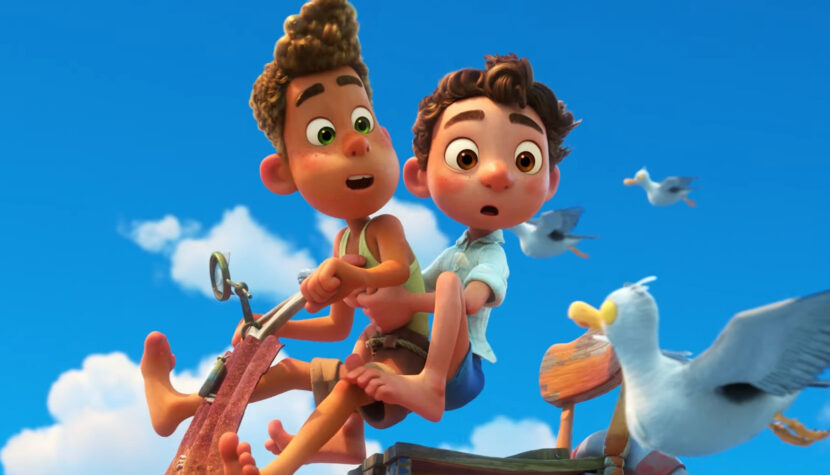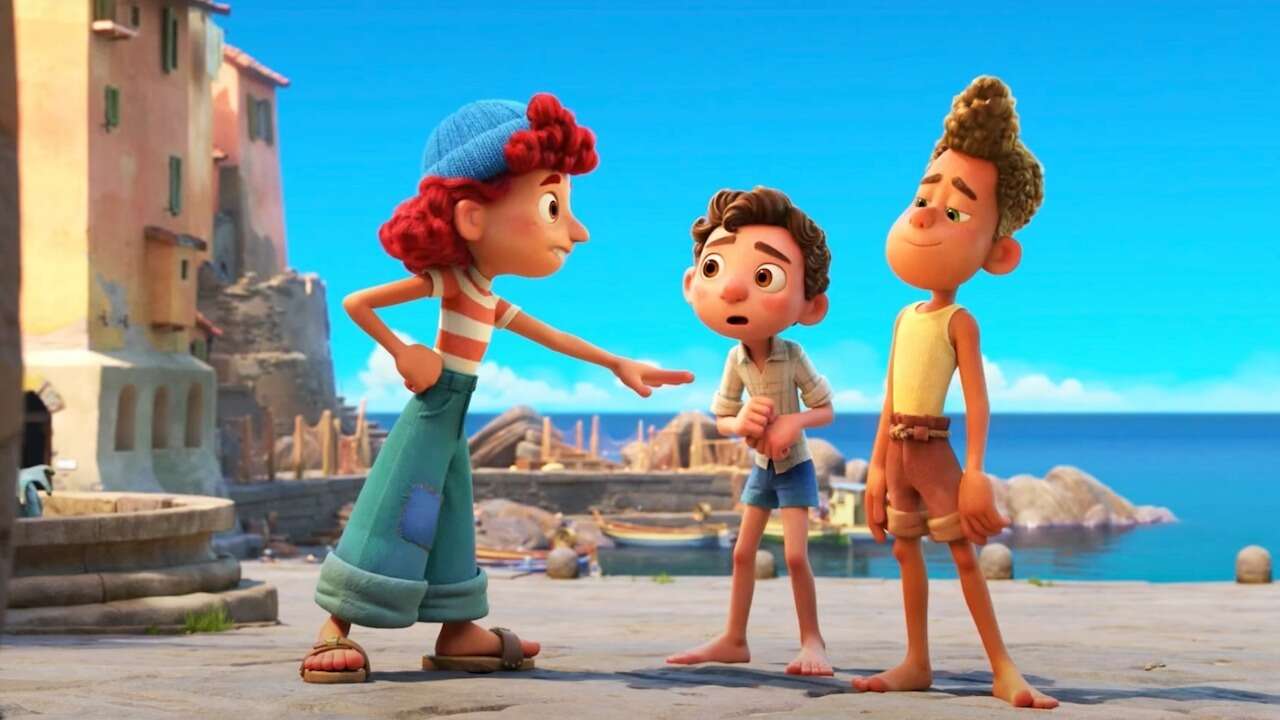LUCA. The Universe in a Glass of Water

Here is a wrench. Over there is a playing card. Elsewhere, there is a gramophone or a glass. Teenage Luca finds various artifacts of human civilization at the bottom of the sea. Unfortunately, as a sea creature, he has no access to that world. On one hand, there is his immense curiosity, and on the other, there is the categorical prohibition from his parents to even peek above the water’s surface. There is also the conviction that on the surface, he would be treated as a monster, at best deserving a spit or fear from strangers, and at worst, a fatal blow from a harpoon. The situation changes dramatically when Luca meets his peer, Alberto. Alberto had long given up life in the ocean depths and camps on a deserted island. Over time, however, this is not enough. Within sight is a bustling town and port. Nothing stands in the way of moving further, especially since when they emerge onto land and avoid contact with water, they transform into ordinary human boys.
Compared to Pixar‘s often complex, multi-layered animated worlds (Monsters, Inc., Inside Out, Coco, Soul), Luca seems exceptionally straightforward. In his directorial debut, Enrico Casarosa does not captivate the viewer with the complexity of the presented world but with an exhaustive portrayal of the theme. First and foremost, it’s about what everyone has within and what serves as an escape: namely, imagination. For Luca, a mere scrap of information – a Vespa motorcycle with the aura of a vehicle, stars, and planets in the sky – is enough to transport him in his mind to a completely different space. This space can be treated as a parallel world to the main plot. What is dreamed up constitutes a separate, mismatched, exaggerated, yet constant point of reference in Luca. The titular character knows so little about the human world, yet he continually wants more, further, fuller.
When Luca and Alberto befriend Giulia, their time among humans takes on a purpose in the form of participating in the town’s annual race (treated rather superficially and as a pretext by the creators). Above all, it turns their perception of the world upside down. Only then does Luca begin to truly understand his surroundings, absorb new experiences, feelings, and knowledge. This last is hidden in every detail: a poster, a word, a textbook page, a postcard, a telescope’s viewfinder. Suddenly, the small town has no horizon, boundaries, or obstacles.

Luca is a cinema of apotheosis and comfort. A cinema of delicate gestures, dealing with balance, the formation of identity, and reminding of the value of every individual. Luca’s attitude motivates one to search, to learn, and not to be afraid. In another sense, Pixar’s animation soothes and calms. The world is open and demands to be discovered, but to feel completely fulfilled, it is enough to embrace a beloved daughter or son. A great asset of Enrico Casarosa’s film (and a certain paradox) is that using rather simple tools, clear symbols, and popular means of expression, it reaches sophisticated conclusions and complex insights.
Among the various themes in Luca, the most interesting one seems to be the relationship between children and parents. Not highlighted in the foreground, unobtrusive, and hidden between the lines, but permeating the film’s narrative fabric. We have Luca, surrounded by the warmth of loving parents but defying their prohibitions. Alberto is an orphan, longing for and awaiting his father’s return, though he probably lost hope for a reunion long ago. Meanwhile, Giulia’s parents are divorced. She spends the summer months with her fisherman father and the school year with her mother in another city. Many viewers might find themselves in one of these situations, on one side or the other. As a result, this is a film not so much “for” as “about” children and adults.

